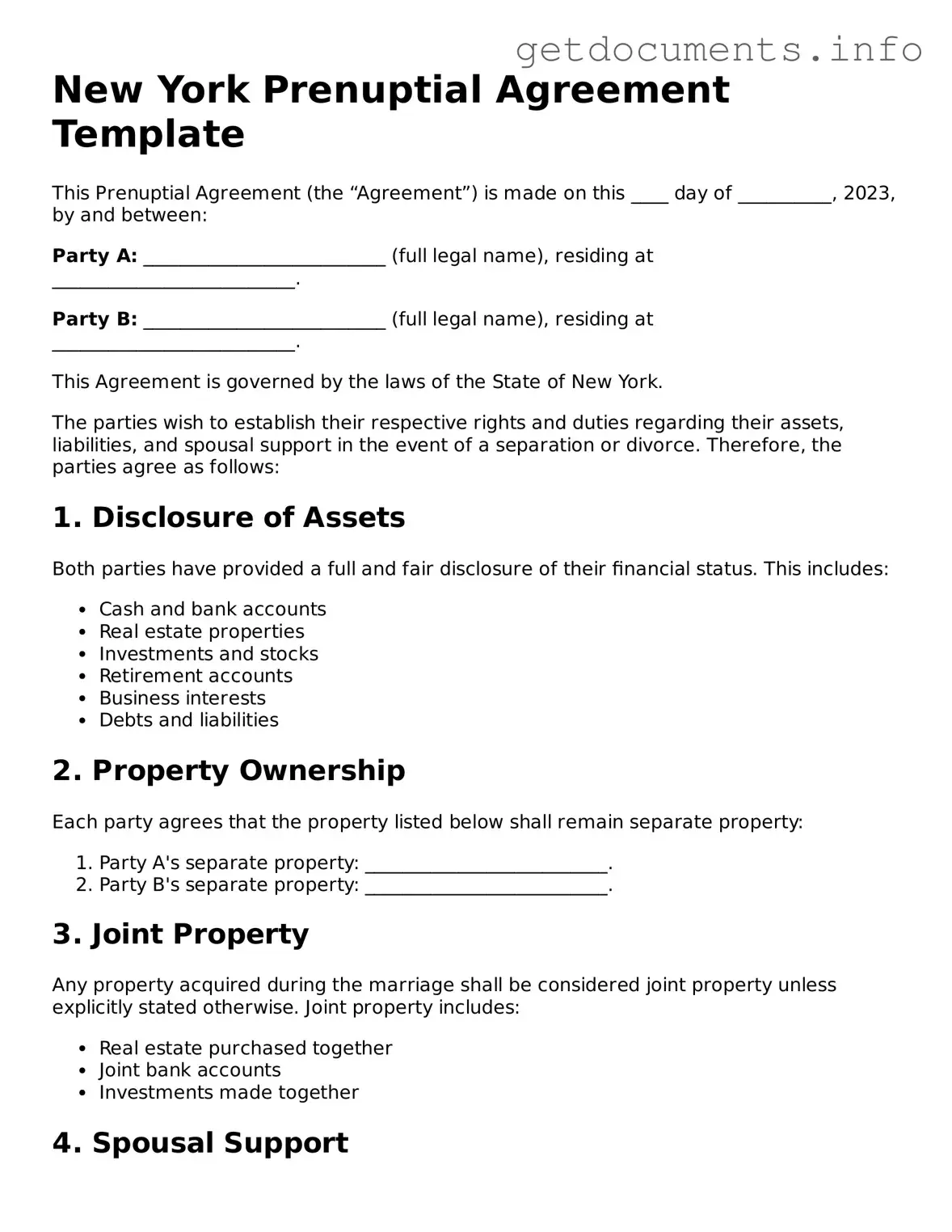Free Prenuptial Agreement Template for New York
A Prenuptial Agreement is a legal document that couples create before marriage to outline the division of assets and responsibilities in the event of divorce or separation. In New York, this form ensures that both parties have a clear understanding of their rights and obligations, promoting transparency and reducing potential conflicts. To get started on your own agreement, fill out the form by clicking the button below.
Access Prenuptial Agreement Editor

Free Prenuptial Agreement Template for New York
Access Prenuptial Agreement Editor
Got places to be? Complete the form fast
Fill out Prenuptial Agreement online and avoid printing or scanning.
Access Prenuptial Agreement Editor
or
⇩ PDF File
